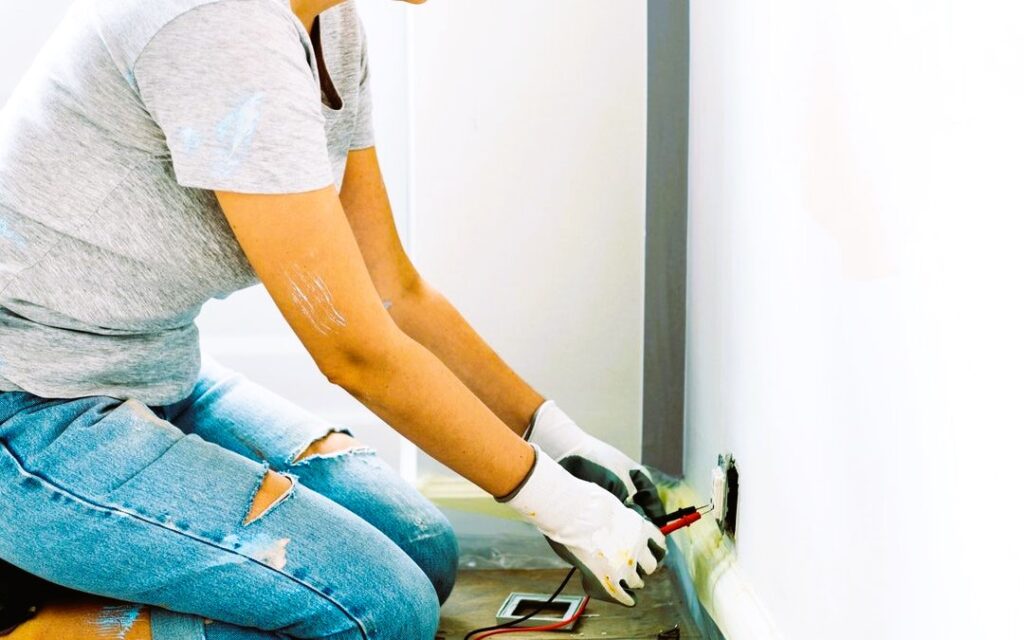Home inspections are a crucial step in the process of buying or selling a property. They provide potential buyers with a comprehensive assessment of the condition of the home, helping them make informed decisions about their investment. Similarly, sellers can benefit from pre-listing inspections to identify any issues that may need to be addressed before putting their home on the market. Regardless of the purpose, home inspections often reveal common issues that are important for both buyers and sellers to be aware of.
- Electrical Problems: One of the most common issues found during home inspections is electrical problems. These can range from outdated wiring and overloaded circuits to faulty outlets and electrical panels. Electrical issues pose a significant safety risk and should be addressed promptly by a qualified electrician.
- Plumbing Leaks: Leaking pipes, faucets, and fixtures are another frequent discovery during home inspections. Even minor leaks can lead to water damage, mold growth, and structural issues if left untreated. It’s essential to repair plumbing leaks to prevent further damage and maintain the integrity of the home.
- Roof Damage: A damaged or deteriorating roof is a common concern identified during home inspections. Issues such as missing shingles, cracked tiles, and water stains indicate potential water intrusion and structural damage. Roof repairs or replacements may be necessary to prevent leaks and ensure the longevity of the home.
- HVAC System Malfunctions: Heating, ventilation, and air conditioning (HVAC) systems are often inspected for proper operation and maintenance. Common issues include dirty filters, malfunctioning thermostats, and worn-out components. Regular HVAC maintenance is essential to ensure optimal performance and energy efficiency.
- Structural Deficiencies: Structural deficiencies, such as foundation cracks, sagging floors, and uneven walls, can compromise the stability and safety of the home. These issues may require professional evaluation and repair to prevent further damage and ensure structural integrity.
- Mold and Mildew: Mold and mildew growth is a common problem in areas with high humidity or water intrusion. Home inspectors may identify mold and mildew in bathrooms, basements, and other damp areas of the home. Proper ventilation, moisture control, and mold remediation are necessary to address these issues and maintain indoor air quality.

- Poor Drainage: Inadequate drainage around the home can lead to water pooling, basement flooding, and erosion. Home inspectors often check for proper grading, gutters, and downspouts to ensure water is directed away from the foundation. Improving drainage can prevent water damage and foundation issues in the future. Read about the importance of pre-listing inspections for sellers in our article.
- Insulation Deficiencies: Insufficient insulation in the attic, walls, and crawl spaces can result in energy loss and reduced comfort in the home. Home inspectors may identify gaps, compression, or inadequate insulation levels during inspections. Upgrading insulation can improve energy efficiency and reduce utility costs.
- Safety Hazards: Home inspections also focus on identifying safety hazards that may pose risks to occupants. These can include trip hazards, exposed electrical wiring, missing handrails, and non-functioning smoke detectors. Addressing safety hazards is essential to protect the health and well-being of residents.
- Deferred Maintenance: Deferred maintenance refers to neglecting routine upkeep and repairs, leading to deteriorating conditions over time. Home inspectors may identify signs of deferred maintenance, such as peeling paint, rotting wood, and crumbling masonry. Addressing deferred maintenance promptly can prevent further deterioration and costly repairs in the future.
In conclusion, home inspections play a vital role in identifying common issues that may affect the condition, safety, and value of a property. Whether you’re buying or selling a home, understanding these common issues and addressing them proactively can help ensure a smooth and successful transaction. For more information on home inspections and property standards, visit Canada.ca.

